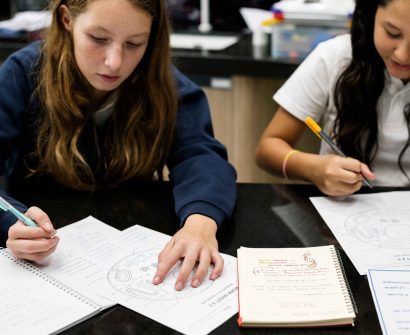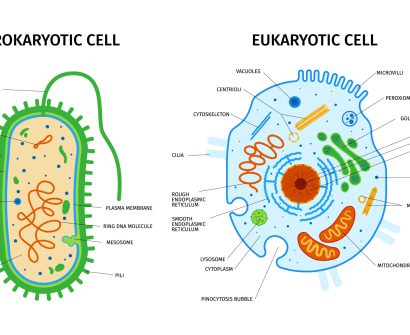Currently Empty: £0.00
How to Master GCSE Biology Revision—The Ultimate AMALearning Guide

Introduction
GCSE Biology can be tough. There’s loads to remember, from complex systems to new words that feel like another language. But here’s the good news: you don’t need to memorise every line of your textbook or be the smartest person in your class. You just need the right approach to revision.
At AMALearning, we’ve helped thousands of students turn things around. If you’re ready to stop stressing and start improving, this guide is for you.
Why GCSE Biology Feels So Hard
It’s not just that there’s a lot to learn — it’s how you’re expected to learn it.
Biology asks you to:
- Understand how different systems work together
- Use scientific terms properly (no vague answers)
- Apply what you’ve learned to new situations, especially in longer questions
- Analyse data, graphs, and experiments
It’s a subject that mixes knowledge, explanation, and interpretation. That’s why having a proper strategy makes such a difference.
Step 1: Use Your Exam Board Specifications
The exam board tells you what could come up. It’s called the specification, and it’s your best revision tool.
- Download it (AQA, Edexcel, OCR, etc.) from our website
- Use it as a checklist
- Tick off each topic once you’ve revised it
It helps you stay focused, avoid wasting time, and clearly see what still needs work.
Step 2: Focus on the Core Topics First
Some topics are key because they link to so many others. Get confident with these early:
- Cells and cell structure
- Respiration and photosynthesis
- Homeostasis and control systems
- Inheritance and genetics
- Ecology and environmental impact
Understanding these well will help across the whole paper — even in unfamiliar question formats.
Step 3: Make a Weekly Plan You Can Actually Stick To
Forget cramming the night before. Real progress happens when you spread things out and plan your time.
- Break your week into short revision sessions
- Be specific (e.g. “Revise photosynthesis Tuesday 5pm”)
- Mix new topics with review sessions
- Set time aside for past papers and practice questions
Even 30–45 minutes a day adds up if you’re consistent.
Step 4: Use Active Revision – Not Just Reading
Reading notes isn’t enough. To really learn, you need to use the information.
Try:
- Flashcards — quick definitions and key facts
- Blurting — write everything you know about a topic, then fill in the gaps
- Teaching — explain a topic to someone else
- Practice questions — especially short-answer and 6-mark ones
The more your brain works to recall things, the better it sticks.
Step 5: Make the Most of Past Papers
Past papers are where everything comes together. Use them early — don’t wait until the week before your exam.
Here’s how to do it right:
- Answer full questions under timed conditions
- Mark your work using the official mark schemes
- Pay attention to where you lost marks — and redo those parts
- Learn how examiners want you to phrase your answers
Also, read examiner reports — they explain what students often get wrong.
Step 6: Learn the Right Language
Biology is full of key words — and getting them right matters.
Important terms include:
- Diffusion, osmosis, active transport
- Enzyme, substrate, denatured
- Mutation, allele, phenotype
- Homeostasis, feedback, stimulus
Also, know what the command words mean:
- State = short fact
- Describe = what happens
- Explain = why it happens
- Compare = similarities and differences
Using the wrong word can cost you marks, even if your idea is correct.
Step 7: Mix Up Your Techniques
No one learns everything the same way. The best students don’t rely on just one method.
Try combining:
- Diagrams + explanations (dual coding)
- Switching topics regularly (interleaving)
- Quick quizzes after each session (retrieval practice)
Changing things up keeps your brain engaged and helps with long-term memory.
Step 8: Don’t Fall Into These Common Traps
- Highlighting without testing = no real learning
- Saving past papers until the end = missed opportunities
- Avoiding tricky topics = they’ll still be on the exam
- Cramming everything into one night = stress and burnout
Plan, space things out, and tackle the hard stuff early — you’ll feel more in control.
Habits That Got Real Students Top Grades
We’ve worked with students who went from grade 4s to 9s. Here’s what they had in common:
- Daily flashcard reviews — not just when revising
- Reading examiner reports to understand what’s expected
- Breaking big topics into small sections
- Teaching what they learned to friends, family, or even the mirror
You don’t have to be perfect — just consistent and curious.
Final Thoughts
GCSE Biology isn’t about memorising every page. It’s about understanding the key ideas, practising how to explain them, and learning how the exam works.
If you plan properly, revise actively, and stick to a system that works, you can absolutely do well — no matter where you’re starting from.
With AMALearning’s support, you’ve got the tools. Now it’s just about using them.
Your Next Steps
Visit
Watch on youtube
Join with us just click below








